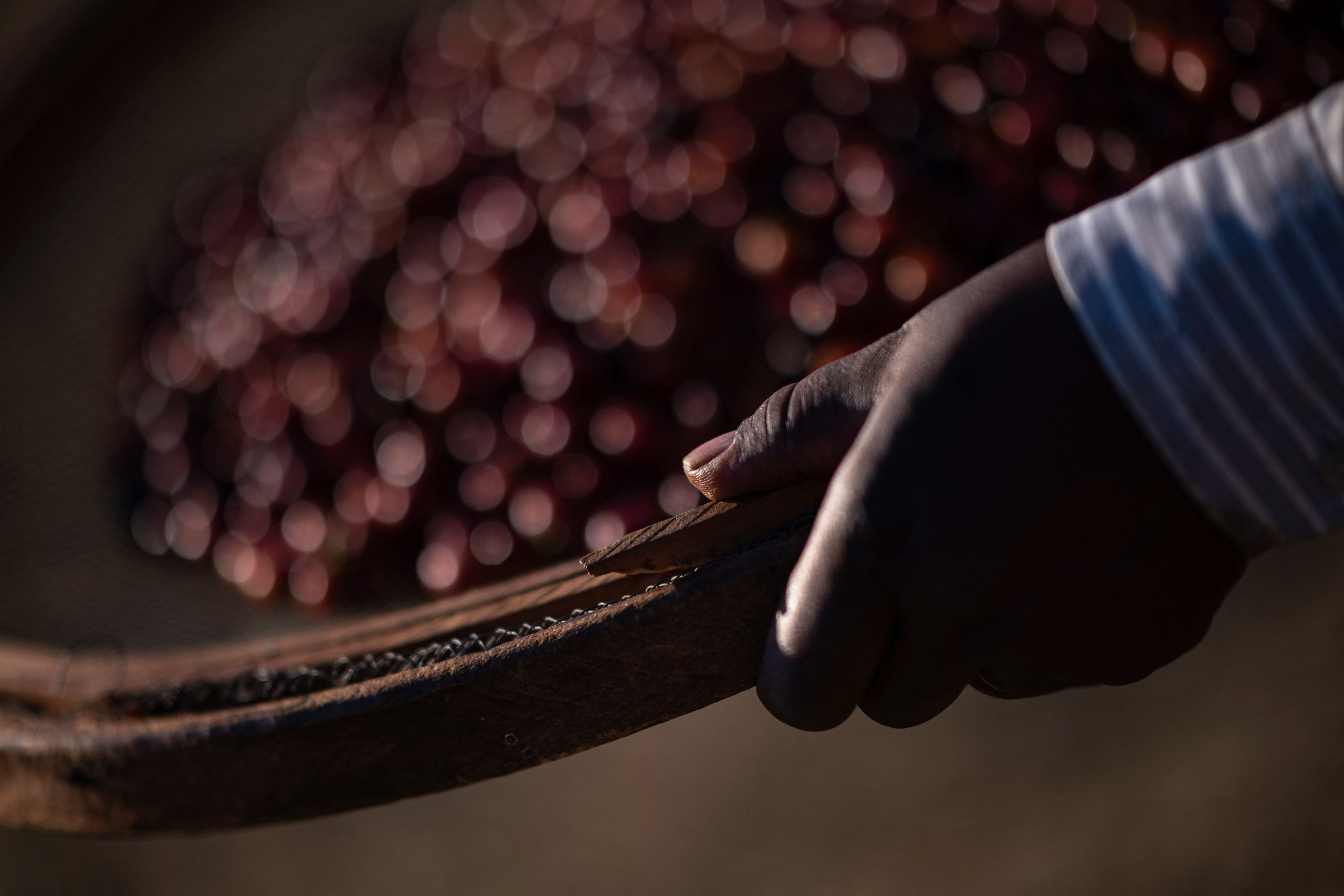Research analyzes Brazil’s framework regarding modern slavery; access now.
Conectas launches a three-part publication with analyses, data, and case studies on slave labor in the coffee supply chain
 Pesquisa sobre o trabalho escravo percorre a cadeia produtiva do café, uma das mais importantes da economia brasileira. Foto: Douglas Magno/AFP
Pesquisa sobre o trabalho escravo percorre a cadeia produtiva do café, uma das mais importantes da economia brasileira. Foto: Douglas Magno/AFP
Brazil has yet to rectify its painful history of slavery. In addition to the lack of effective historical reparations, forced labor remains a sad reality in the country.
Despite advances in combating conditions analogous to slavery in recent decades, the country continues to face critical challenges in ensuring transparency in supply chains and due diligence regarding human rights, areas where legislation is notoriously lacking.
With the aim of contributing to the discussions on this matter, Conectas is launching the first part of a study on slave labor in Brazil’s coffee industry this Tuesday (1). “Slave labor in the coffee industry: from the farms to the multinationals” is the result of the Mind the Gap project, a global initiative led by the Dutch organization SOMO, which aimed to identify, systematize, and understand the strategies used by corporations worldwide to avoid accountability for human rights violations and negative environmental impacts caused by their operations.
Read more
The Conectas publication will be divided into three parts, which will be released individually over the coming months. Part I identifies and analyzes the key gaps in Brazilian legislation and governance mechanisms, with special focus on the implications for corporate accountability and access to justice in cases involving companies with complex global supply chains.
The report reveals significant gaps and highlights the urgent need to strengthen legislation and enforcement mechanisms to protect workers and promote a more just and equitable future.
Advances and challenges
One of the milestones in the fight against slave labor in Brazil includes the creation of the concept of “working conditions analogous to slavery” in the legislation, as well as the adoption of measures such as the “Dirty List,” which names companies caught exploiting slave labor. These are effective tools for raising societal awareness and are essential for monitoring and punishing offenders.
However, the absence of specific laws on supply chain transparency and human rights due diligence still leaves significant gaps in the protection of workers. Unlike countries such as the United Kingdom, Australia, and Germany, which have adopted specific legislation like the Modern Slavery Act, requiring companies to publish detailed reports on their efforts to combat slave labor and other human rights violations, Brazil does not have legislation of this nature.
The lack of these regulations allows companies to operate with little or no accountability for the working conditions of their suppliers, making it difficult to monitor them or hold them responsible for abusive practices.
The implementation of laws requiring transparency and due diligence is essential for Brazil to advance in the protection of human rights and would strengthen its commitment to eradicating all forms of modern slavery.
The importance of tools to combat modern slavery
In a context where transnational companies often adopt sophisticated strategies to avoid accountability for rights violations and negative environmental impacts, it is increasingly necessary to develop mechanisms that identify, systematize, and understand these tactics.
“Slave labor in the coffee industry: from farms to multinationals” not only sheds light on corporate practices that perpetuate injustices but also provides a solid foundation for the formulation of more effective and fairer public policies. By mapping these strategies, the material contributes to strengthening the fight against corporate impunity and promoting a model of economic development that respects human rights and the environment.
The publication also underlines the importance of the role of the state in strengthening the enforcement and implementation of robust public policies. In addition to highlighting the urgent need for reparations for victims of conditions analogous to slavery, it is also an important tool for the protection and promotion of human rights.






